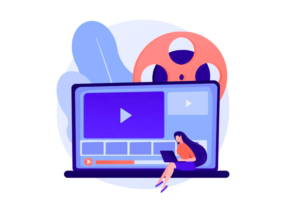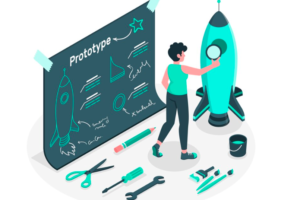In an era characterized by rapid technological advancements, the role of artificial intelligence (AI) continues to expand across various industries and domains. One of the areas where AI has made a significant impact is in the realm of job interviews. Traditional job interviews, once conducted solely by human recruiters, are now being revolutionized by AI-powered chatbots. These intelligent virtual interviewers are changing the landscape of recruitment and selection, bringing both advantages and challenges to the table.
The Rise of AI Chatbots in Interviews
AI chatbots have emerged as powerful tools for automating various tasks, and the recruitment process is no exception. The traditional interview process is often time-consuming, resource-intensive, and subject to human biases. AI chatbots offer a solution by providing an efficient and standardized method for conducting interviews.
These AI chatbots are designed to engage with job candidates in a conversational manner, simulating a real-life interview experience. They can ask questions, analyze responses, and even assess non-verbal cues through text analysis and natural language processing. This technology allows companies to streamline their recruitment efforts, increase the speed of hiring, and reduce the burden on human resources personnel.
Advantages of AI Chatbot Interviewers
1. Consistency and Standardization
Human interviewers can unintentionally introduce biases based on factors such as gender, ethnicity, or even mood. AI chatbots offer a consistent and standardized interview experience for all candidates, ensuring that each individual is evaluated based on the same set of criteria. This helps in creating a fair and level playing field for all applicants.
2. Efficient Screening
With a growing number of job applications flooding in for each position, HR departments often struggle with the initial screening process. AI chatbots can efficiently evaluate candidates by asking them predefined questions and assessing their responses. This process allows for quick identification of top candidates who align with the job requirements, saving valuable time for HR professionals.
3. Reduced Hiring Costs
Recruitment is a resource-intensive endeavor that involves not only time but also financial investments. AI chatbots can significantly reduce hiring costs by automating various stages of the interview process. This technology minimizes the need for physical resources and manpower, enabling organizations to allocate their resources more effectively.
4. Data-Driven Insights
AI chatbots can generate valuable data insights from the interview process. By analyzing candidate responses, language patterns, and sentiment, these chatbots can provide HR teams with valuable information about a candidate’s suitability for the role. This data-driven approach allows for better decision-making and the continuous improvement of the recruitment process.
5. Improved Candidate Experience
Applying for jobs can be a stressful experience for candidates, particularly when waiting for feedback post-interview. AI chatbots can provide immediate feedback to candidates, keeping them engaged and informed about the next steps. This improves the overall candidate experience, reflecting positively on the company’s image and reputation.
Challenges and Considerations
While AI chatbot interviewers offer numerous benefits, their adoption is not without challenges and considerations.
1. Lack of Human Touch
Interviews are not just about assessing skills and qualifications; they also involve assessing cultural fit and interpersonal dynamics. AI chatbots, although advanced, lack the empathy and intuition that human interviewers bring to the table. This can potentially lead to misjudgments and incorrect evaluations.
2. Unforeseen Bias
While AI chatbots aim to eliminate human bias, they are not immune to biases present in the training data they learn from. If the training data is biased, the chatbots can inadvertently perpetuate those biases in their evaluations, leading to unfair outcomes.
3. Technical Glitches
AI technology is not immune to technical glitches. A malfunctioning chatbot can lead to frustrating experiences for both candidates and recruiters. This emphasizes the need for robust testing and maintenance to ensure a smooth interview process.
4. Adaptability to Complexity
Some roles require intricate problem-solving, critical thinking, and domain-specific knowledge. AI chatbots might struggle to assess candidates for such roles, as they might not be equipped to fully comprehend the complexity of the position.
The Way Forward
AI chatbots are undoubtedly transforming the way job interviews are conducted, offering efficiency, consistency, and data-driven insights. However, their implementation should be strategic and balanced. Human involvement is essential, particularly for roles that demand a nuanced evaluation.
To make the most of AI chatbot interviewers, companies should:
- Train the Bots Right: Ensuring that the AI chatbots are trained on diverse and unbiased data is crucial. Regular updates and feedback loops are necessary to continuously refine the bot’s performance.
- Supplement, Don’t Replace: AI chatbots should be seen as tools that complement human expertise rather than replacing it entirely. Human touch and intuition remain essential, especially for roles that require intricate evaluation.
- Ethical Considerations: Companies should be vigilant about potential biases in AI algorithms and work towards creating fair and inclusive interview processes. Regular audits and assessments can help address these concerns.
- Continuous Improvement: AI chatbots should be treated as dynamic tools that can be improved over time. Gathering feedback from candidates, recruiters, and HR professionals can lead to iterative enhancements.
In conclusion, AI chatbots are indeed the new job interviewers, offering efficiency, consistency, and standardized evaluations. Their rise in the recruitment landscape reflects the ongoing fusion of technology and human resources. While challenges exist, strategic implementation, ongoing monitoring, and a thoughtful balance between AI and human involvement can lead to a more effective and inclusive recruitment process. As AI technology continues to evolve, the role of chatbots in interviews will likely become even more sophisticated, reshaping the future of talent acquisition.





